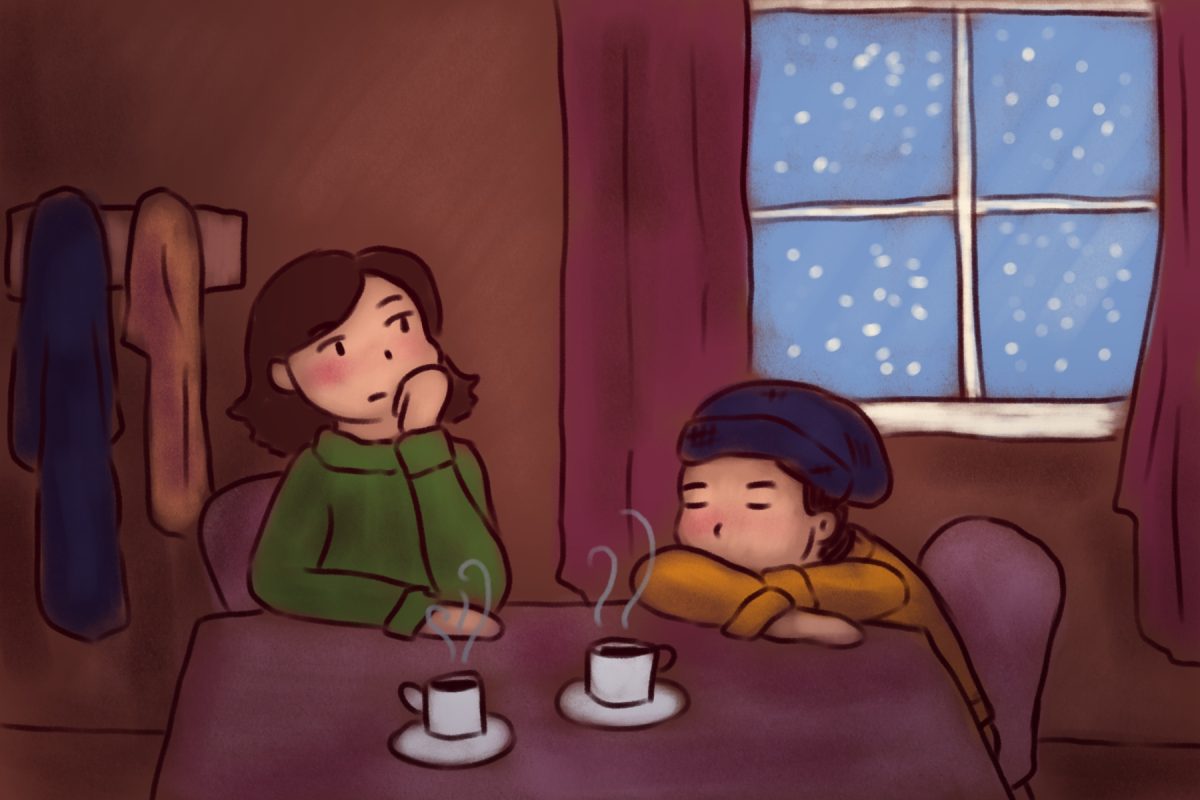As the clocks are set back an hour and it gets dark earlier, students may suffer from seasonal affective disorder, more commonly known as seasonal depression.
While scientists aren’t sure why this happens, a leading idea is that the lack of sunlight is what causes this wave of sadness.
According to the National Institute of Mental Health, levels of serotonin have difficulty working when the daylight hours are shorter, which leads to lower serotonin levels. On the other hand, shorter days increase melatonin which is a hormone that affects tiredness. Increased levels of melatonin and lesser levels of serotonin affect one’s daily routine with mood, sleep and behavior.
Lindsey Jacobs, UA director of clinical psychology, said students should notice the patterns and, if they only feel down during the winter months, should be aware of seasonal depression.
A treatment that is often prescribed to those suffering from seasonal affective disorder is to sit in front of a lamp for a few minutes, Jacobs said. Light therapy is used with a light box that mimics outdoor lighting, and it is believed to help with lifting moods.
“A lot of people think that unless they feel like they have an extreme problem with focus or depression, they won’t seek out therapy,” said Samuel Krimmer, a graduate teaching assistant in the English Department. “If you’re struggling with anything, going to find help from somebody is the best thing you can do.”
According to Johns Hopkins Medicine, some of the main signs of experiencing seasonal depression are social withdrawal, increased sleep, loss of interest, mood swings and decreased ability to focus.
“It can be tough if you don’t have that great support system,” said Krissy Chism, a junior majoring in psychology. “Your feelings are valid, and you have every right to experience what you feel. Don’t just think, ‘Oh, it’s seasonal depression, it’s not that big of a deal.’”
Krimmer said student attendance drops near the end of the semester, though it is hard to distinguish semester fatigue and seasonal depression. Keeping a routine and prioritizing themselves can help students manage seasonal depression.
“Finding some way to get outdoors or to have a social outlet keeps me sane more than probably anything else,” Krimmer said. “As well as having goals and projects and things where it feels like you’re working towards something, rather than just filling a box.”
Another treatment includes psychotherapy, an evidence-based treatment with one-on-one or group conversations with a licensed medical professional.
Jacobs said that there are generational differences when discussing mental health; older generations often don’t talk about their well-being, while younger generations have an easier time opening up.
“When depression becomes worse, it can impact the person’s self-esteem and their thoughts about how they think about themselves and others in the world,” Jacobs said. “Therapy can help individuals learn how to manage stress better and improve their interpersonal relationships.”
Jacobs said that when students notice they are on autopilot and don’t feel much pleasure in life, it would be a good time to seek a therapist or counselor.
She also said the sooner one can find healthy ways of coping with stress, the easier it can be to make changes.
“Needing some additional support is not a personal failure at all,” she said. “It takes strength and courage to reach out for help, and we only have a certain number of years to live on this earth, and I hate for people to live those years suffering.”









